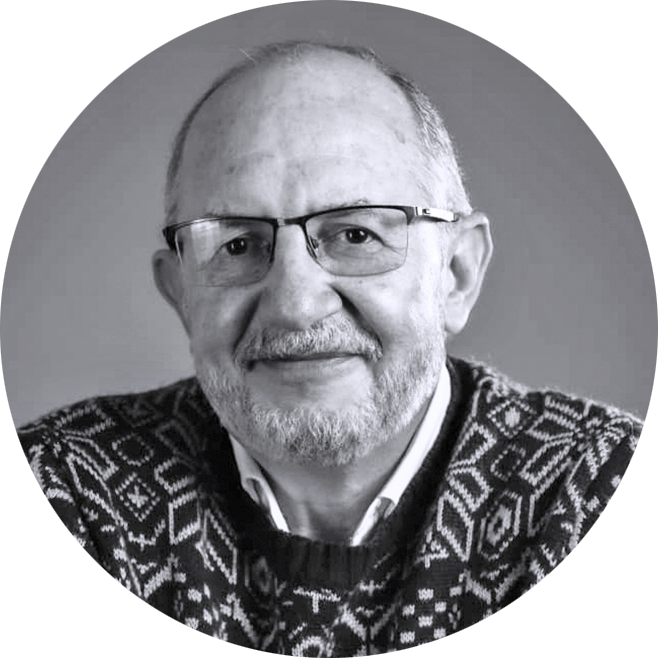
Alejandro Álvarez Gallego
Rector, Universidad Pedagógica Nacional
Column published – September 30, 2023

An invitation to not reject
Recently, the Minister of Education Aurora Vergara Figueroa invited me to assume the position of Vice Minister of Higher Education. My first reaction was to thank her for considering me and to tell her that my commitment to the Universidad Pedagógica is also important, by proposing and working on alternatives to overcome the deep inequities the country has in this sector. However, a few days later, the Minister made me a second invitation which I couldn’t refuse.
It has been a difficult time. My team and I have been working tirelessly for 15 months on the four main lines we proposed in the government program and that were included in the Institutional Development Plan, recently approved by the Higher Council: Qualification of the Pedagogical Academic Project – Missionary Coordination for the UPN Positioning – Casa Digna – Well-being and formative coexistence for peace. And I said that it has been difficult because this process is just beginning to strengthen, but we already have the support and willingness of an important part of the university community. As a result, the news has generated uncertainty.
The first reaction of many people was concern, thinking of the risk of losing the achievements gained in these past months. We have also paid attention to many opinions about this invitation
as a recognition of the role that the Universidad Pedagógica Nacional has historically played in the field of higher education, and particularly in the teacher training issue. The analysis the management team and I developed has found a clear path which the community will know how to consolidate through the time, with maturity and wisdom, taking firm steps in every area that we consider a priority.
I face this call with the regret of not being able to see UPN going further, but I remain calm because I know that the leading team is the best and knows where to go. The challenge ahead is immense.
So now, what scenario is opened up with the post of Vice Minister of Education? Among the challenges the government faces, education is gaining unprecedented relevance and finally, making room for a debate which will have to be intelligently held in order to achieve true transformations in the current institutional organization, in this case, in Colombian higher education. The idea of a university in your town, the coverage and new infrastructure goals, the reform of the quality assurance system and the support to the minister in the process of making the Education Statutory Law and the reform of Law 30 being successful, as well as the search for a law capable to organize the Colombian teachers training system of, which consider normal schools part of higher education; all of this becomes a challenging responsibility that I have decided to assume.
We are undergoing profound changes in youth subjectivities; the way young people see higher education programs is reflected in its decreasing demand; it is a global phenomenon, but particularly distressing throughout our country. We should think seriously about this phenomenon, which has multi-causal explanations. It is time for us to focus all our intelligence on solving these questions: Who are young people nowadays? What is happening with the institution and the authorities? What is university democracy? What is the relationship between the academia, well-being and political action? The reflection on these questions would lead us to answer the most urgent: how can we structure an academic offer and a new higher education system, including all post-secondary education, that remains relevant and attractive to our young people? And how can we ensure that this new system guarantees a full, dignified and free life that contributes to a just and peaceful society? If we fail to do so, we will continue reproducing the cycle of poverty and exposing young people to illicit economies and illegal organizations.
As we know, education is a fundamental right. This means that through it we can access other rights such as health, work, citizen participation, land and housing in a more easier way. The challenge of guaranteeing youth the right to higher education is as necessary as stating that, without it, the country is sentenced to repeat poverty and violence circle. Guaranteeing the right to a good education, which is an urgent national goal, will depend partly on the answer we give to these questions.
In previous columns I expressed myself about several of these issues, and now that I have the opportunity, I hope to share those ideas and help the Government to achieve the outcomes for national good education. Behind me there are hundreds of colleagues I have met and who have taught me what I will deliver today in the Ministry of Education.
I never thought that our dreams and struggles could become true in the educational policy scenario. It will be hard, the time available is relatively short, but it is a matter of creating the conditions for Colombian education to finally become a fundamental right.
Thank you Minister for your invitation, I hope to be up to what Colombian youth need and to accompany the promises made by the government of change.